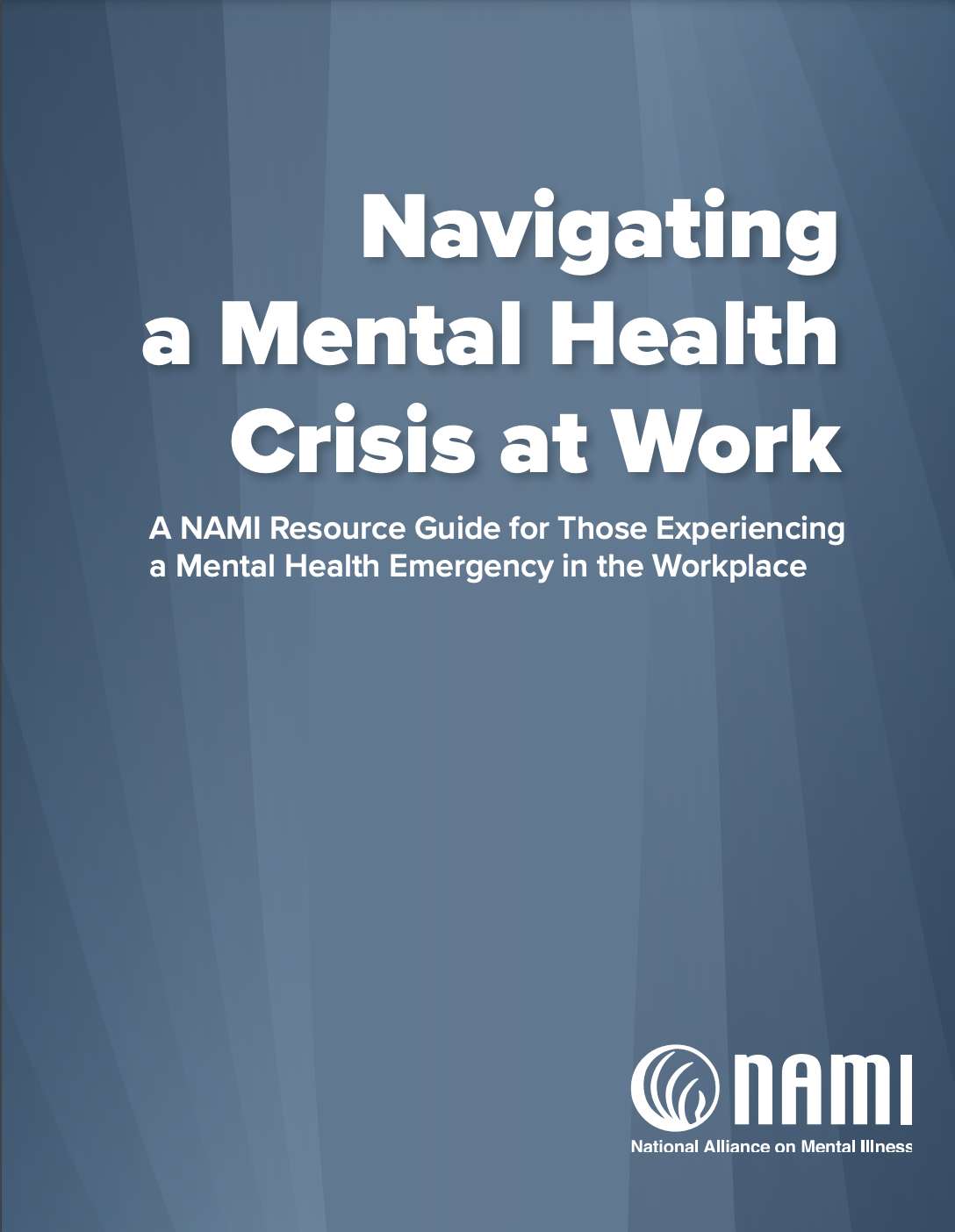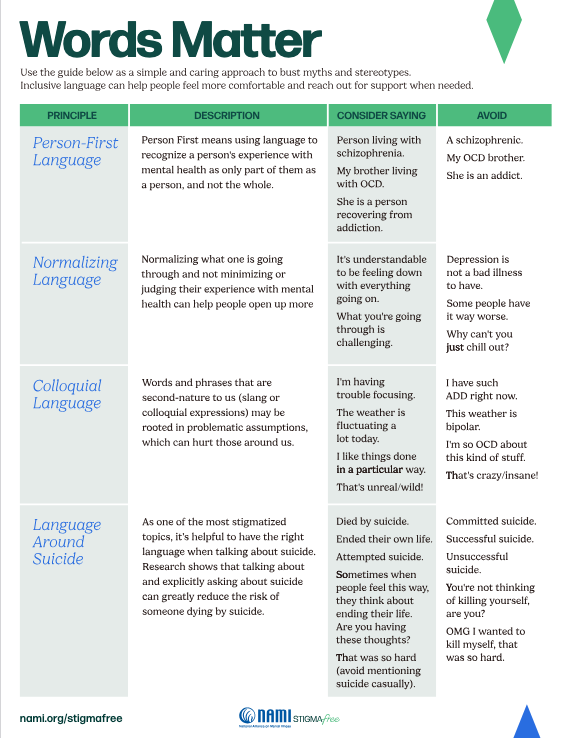Person-First Language
Person-First means using language to recognize a person’s experience with mental health as only part of them as a person, and not the whole.
Consider Saying:
“Person living with schizophrenia.”
“My brother living with OCD.”
“She is a person recovering from addiction.”
Avoid:
“A schizophrenic.”
“My OCD brother.”
“She is an addict.”
Normalizing Language
Practice normalizing what someone is going through and not minimizing, downplaying, or judging their experience with mental health. When we normalize these experiences, we can help people open up more.
Consider Saying
“It’s understandable to be feeling down with everything going on.”
“What you’re going through is challenging.“
Avoid
“Depression is not a bad illness to have.”
“Some people have it way worse.”
“Why can’t you just chill out?”
Colloquial Language
Words and phrases that are second-nature to us (slang or colloquial expressions) may be rooted in problematic assumptions, which can hurt those around us.
Consider Saying
“I’m having trouble focusing.”
“The weather is fluctuating a lot today.”
“I like things done in a particular way.”
“That’s unreal/wild!”
Avoid
“I have such ADD right now.”
“This weather is bipolar.”
“I’m so OCD about this kind of stuff.”
“That’s crazy/insane!”
Language Around Suicide
As one of the most stigmatized topics, it’s helpful to have the right language when talking about suicide. Research shows that talking about and explicitly asking about suicide can greatly reduce the risk of someone dying by suicide.
Consider Saying
“Died by suicide.” “Ended their own life.” “Attempted suicide.”
“Sometimes when people feel this way, they think about ending their life.”
“Are you having these thoughts?”
“That was so hard.” (avoid mentioning suicide casually)
Avoid
“Committed suicide/Successful suicide.”
“Unsuccessful suicide.”
“You’re not thinking of killing yourself, are you?”
“OMG I wanted to kill myself, that was so hard.”



